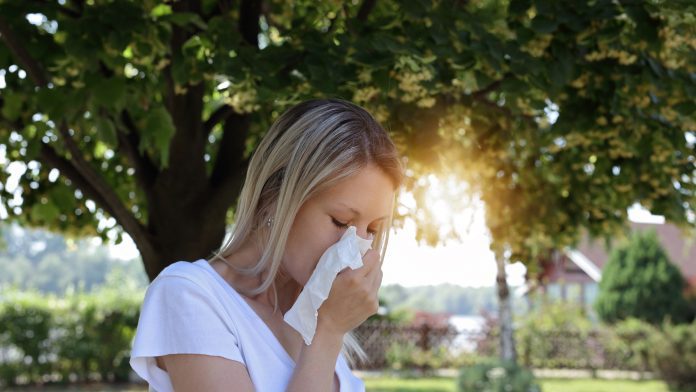
Individuals in urban areas report significantly worse hay fever symptoms, according to the first study to compare pollution levels with symptoms.
The University of Manchester studied 36,145 hay fever symptom reports submitted over five years from 2016 to 2020 by over 700 participants using a citizen science application called Britain Breathing.
The research is published in Scientific Reports and compares self-reported hay fever symptoms in urban and rural locations.
Focus on three key hay fever symptoms
The severity of three symptoms captured by the app – runny nose, sore eyes and wheezy breathing – were roughly twice as severe in urban areas than in rural areas across all years.
The study combined pollution measurements and pollen and meteorological data taken from the UK Met Office with real-time, geo-positioned reports to examine the relationship between hay fever symptom severity and air quality.
The analysis shows that urban areas record significantly higher hay fever symptom severity and longer symptom duration for all years except 2017. Rural areas did not record significantly higher symptom severity in any year.
The symptoms were correlated with urban or rural tags using land-use data from the UK’s Office for National Statistics. Furthermore, the severity of hay fever symptoms correlated with ozone levels. Ozone has previously been linked to respiratory problems.
Symptom severity can change depending on external factors
The report recorded that in 2017, hay fever symptom severity was reduced. A potential reason for this could be that the number of days with moderate or higher O3 levels dropped slightly that year before rising sharply and staying relatively high in subsequent years.
2017 was also warmer and wetter than other years, which may have affected pollen counts, pollution or participants’ biological reactions.
One of the study authors, immunologist Professor Sheena Cruickshank, said: “The worldwide prevalence of the allergic respiratory disease has risen considerably in recent years. However, hay fever affects people differently and can change over a lifetime, and data is lacking on how environmental factors may influence this.
“This study provides evidence that urban surroundings may exacerbate hay fever and asthma symptoms. It also provides a broader picture of chronic health issues experienced by hay fever and asthma sufferers, as opposed to only observing those with more acute and/or problematic reactions.
“These differences in allergy symptoms may be due to variation in the levels of pollutants, pollen counts and seasonality across land-use types.”
Professor of Computer Science Caroline Jay said: “The relationship between where people lived and the symptoms they experience was clear, but why people experience worse symptoms in urban areas is complex. There may be many aspects of the city environment that have a negative impact on respiratory health.”









